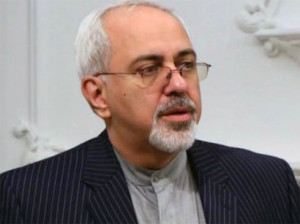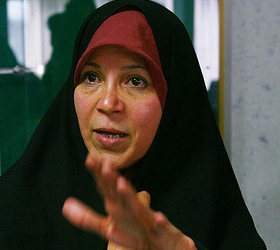
In his first interview since becoming foreign minister, Mohammad-Javad Zarif repeated the same old conspiracy theory rhetoric that has long blighted the Islamic Republic, repeating the charge that the ongoing unrest in places like Egypt is solely the result of foreign intervention.
The rhetoric didn’t come in an interview with some rightwing newspaper, but with Iranian Diplomacy, a publication of the Foreign Ministry’s think tank where a more professional standard is usually maintained.
It is possible that Zarif is just trying to cover his flanks and counter charges that he is a closet Westerner, but that would normally be resorted to in the popular media and not in a professional publication like Iranian Diplomacy.
Zarif was asked about his top priorities in the many disorders that are currently inflicting the Middle East. He did not answer the question at all. Instead, he began his response by saying, “Conditions in the region have become hectic and inflammatory as a result of the shortsightedness of certain political players—most of them coming from outside the region…. We can see the clear hands of foreign interventionist powers that foment unrest in the region, the result of which is the loss of thousands of innocent lives.”
In a separate announcement Monday, Zarif said he had received a call from Catherine Ashton, the EU foreign policy chief, expressing the desire of the Big Six to resume nuclear talks.
“In response, I reiterated that the Islamic Republic is willing to resume talks. In the phone conversation, I told Mrs. Ashton that we favor a solution instead of merely engaging in talks,” Zarif said.
That was a clear putdown of the Ahmadi-nejad Administration and of Saeed Jalili, its nuclear negotiator, as well as a seeming admission that Tehran was the problem in the talks.
But in his interview with Iranian Diplomacy, Zarif did not find fault with Iran’s conduct. Instead, he blamed the United States for the failure to reach a nuclear agreement long ago. “The main issue is … whether the US Administration is actually ready to stand up to radical groups and prevent such radical groups from setting the course on the whole issue. This will be, in fact, a litmus test for the government of the United States to show its readiness to play a more serious role and pave the way for the achievement of a final solution.”
























